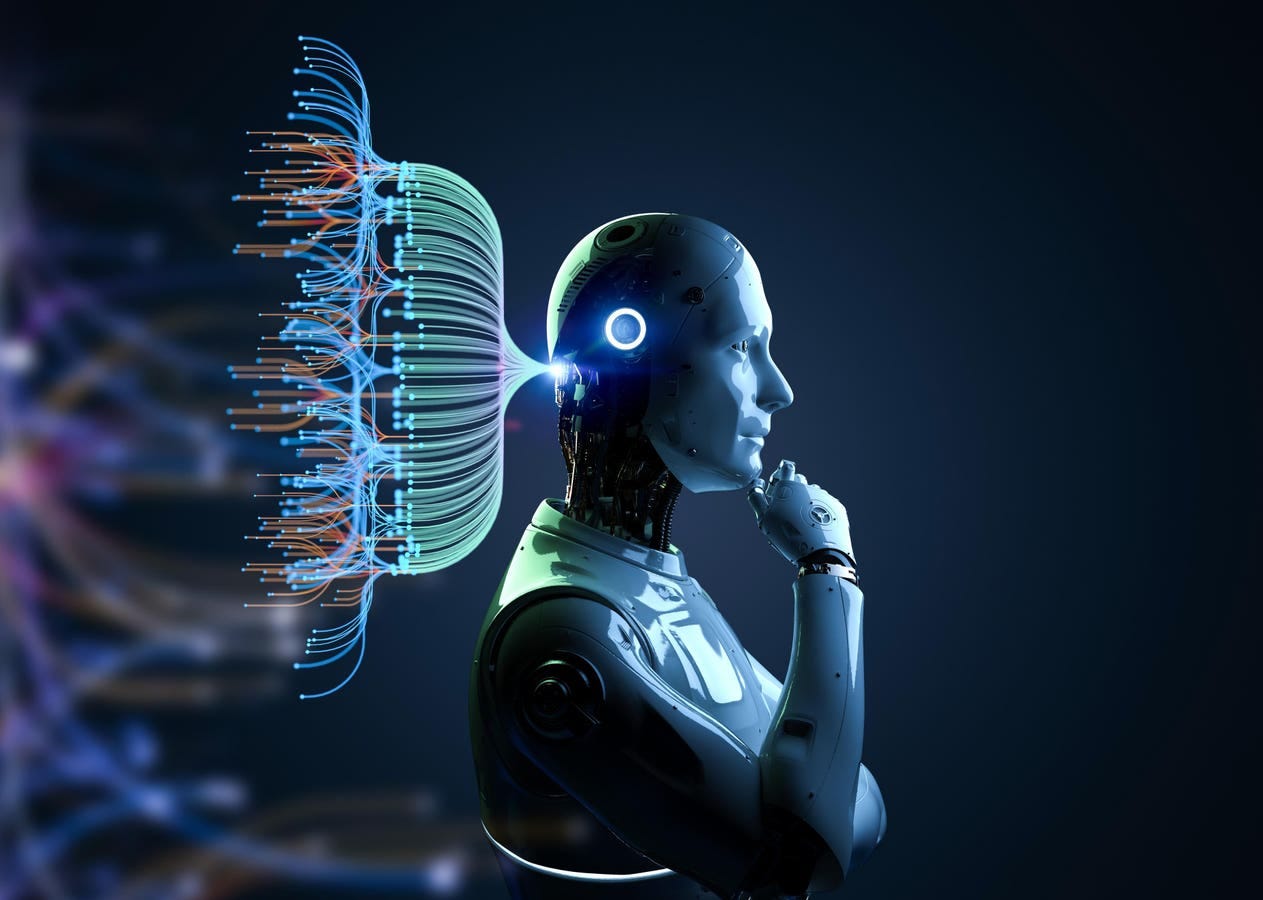This article is read by the author.
“In the realm of faith, some topics inevitably stir debate and differing opinions. As we navigate the complexities of modern Christianity, it's essential to engage with these controversial subjects head-on. Over the next few articles, we'll dive into issues that, while often discussed, continue to provoke thought and conversation. These topics challenge us to reflect deeply on our beliefs, consider new perspectives, and reaffirm our commitment to the core tenets of our faith. By addressing these matters openly, we hope to foster a community of believers who are not only informed but also courageous in their pursuit of truth.”
Noah A. Hinton
In the rapidly evolving world of technology, Artificial Intelligence (AI) is making its mark in various fields, from healthcare to finance. But what happens when AI steps into the sacred territory of the Church? Can machines, devoid of a soul, effectively preach the Word of God?
The Rise of AI in Religious Spaces
AI’s capabilities are growing exponentially, and its presence is increasingly felt in many aspects of daily life. Some churches have begun experimenting with AI to enhance their services. From chatbots answering theological questions to AI-generated sermons, the integration of technology into religious practice is becoming more common.
Theological Implications
This development raises profound theological questions. Can a machine, created by humans, convey the divine message of God? Traditional Christian doctrine teaches that the Holy Spirit inspires preaching and that pastors are called to this ministry. Can an AI, lacking the breath of life and spiritual discernment, truly fulfill this role?
As John 14:26 reminds us, "But the Helper, the Holy Spirit, whom the Father will send in my name, he will teach you all things and bring to your remembrance all that I have said to you." This underscores the essential role of the Holy Spirit, a role that AI, devoid of spiritual discernment, cannot fulfill. Moreover, 1 Corinthians 2:14 states, "The natural person does not accept the things of the Spirit of God, for they are folly to him, and he is not able to understand them because they are spiritually discerned." AI, being a product of human creation, lacks the capacity for spiritual discernment, making it inherently incapable of grasping the deeper truths of Scripture.
As believers, we are called to "trust in the Lord with all your heart, and do not lean on your own understanding" (Proverbs 3:5). This verse reminds us that divine wisdom surpasses human ingenuity, urging us to rely on God's guidance rather than technological solutions. Thus, while AI can be a helpful tool, it cannot replace the spiritually infused, Spirit-led teaching that is central to the Christian faith.
Benefits and Risks
On the one hand, AI could make the Word of God accessible to more people. It can provide instant answers to biblical questions. However, there are significant risks. AI lacks the ability to empathize, understand context deeply, and interpret the subtleties of Scripture that come from a lived relationship with Christ.
Ethical Concerns
There are also ethical concerns. Reliance on AI for spiritual guidance could lead to a superficial faith experience. The church's role in fostering a personal relationship with God might be undermined if believers turn to machines instead of human pastors for spiritual growth.
Conclusion
As we stand on the brink of this technological frontier, the Church must carefully consider its stance on AI. While technology can be a tool for spreading the Gospel, it should never replace the human element crucial to our faith. Pastors, guided by the Holy Spirit, are irreplaceable in the mission of shepherding God's flock.
The Apostle Paul clearly states, “And He Himself gave some as apostles, and some as prophets, and some as evangelists, and some as pastors and teachers, for the equipping of the saints for the work of service, to the building up of the body of Christ, until we all attain to the unity of the faith, and of the full knowledge of the Son of God, to a mature man, to the measure of the stature which belongs to the fullness of Christ, so that we are no longer to be children, tossed here and there by waves and carried about by every wind of doctrine, by the trickery of men, by craftiness in deceitful scheming, but speaking the truth in love, we are to grow up in all aspects into Him who is the head, that is Christ, from whom the whole body, being joined and held together by what every joint supplies, according to the properly measured working of each individual part, causes the growth of the body for the building up of itself in love” (Ephesians 4:11-16). AI is not one of the gifts that Christ gave to the church and should not be considered a valid spiritual guidance sent from God.
Follow this link to listen to David Crater explain in five lessons how we can think biblically about AI.









The Gospel According to AI